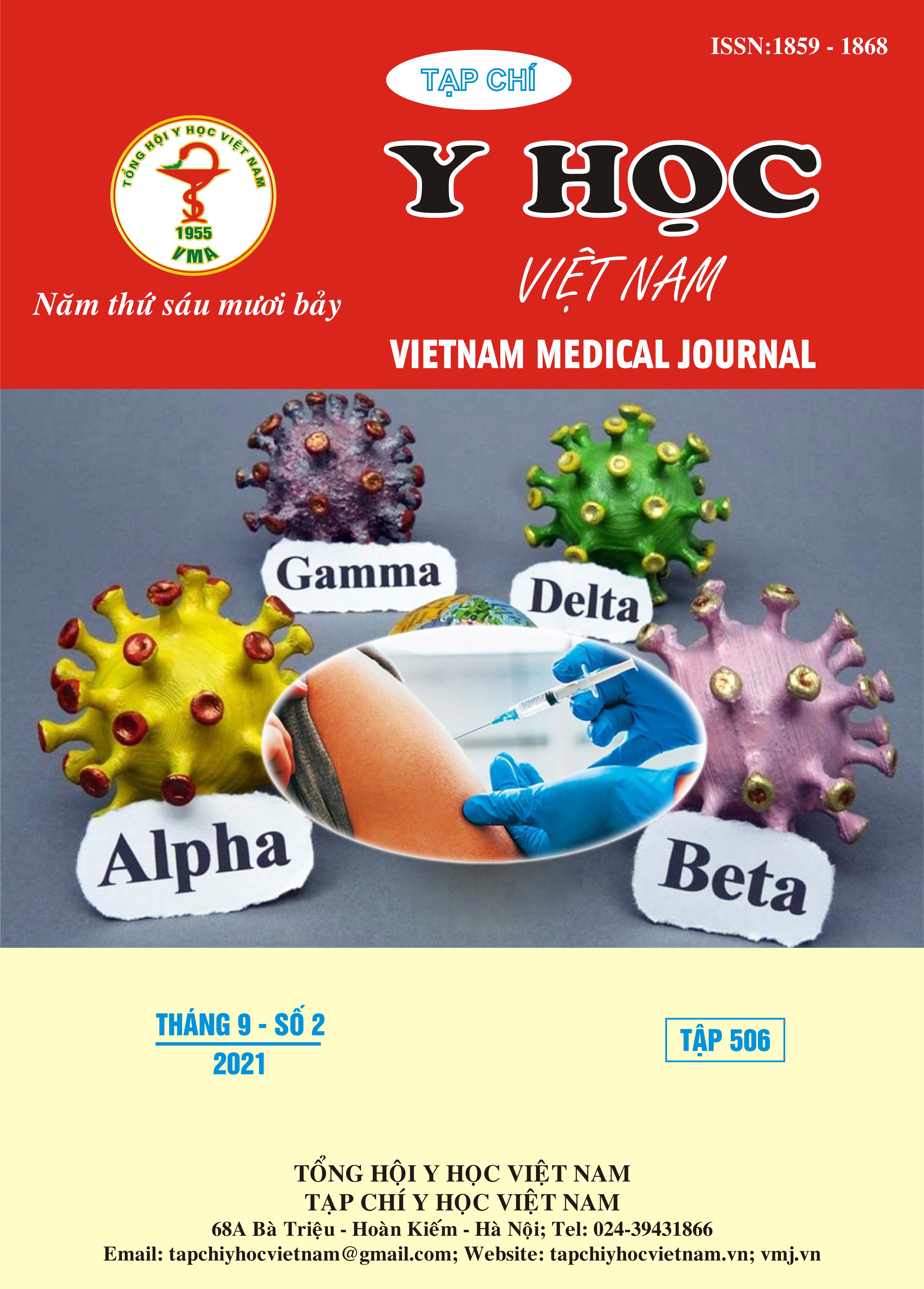THE ASSOCIATION BETWEEN ADIPOQ rs1501299 AND TYPE 2 DIABETES IN VIETNAMESE POPULATION
Main Article Content
Abstract
Background: Genetic factor plays an important role in pathophysiology of type 2 diabetes. In this study, we evaluated the association between ADIPOQ rs1501299 and type 2 diabetes in Vietnamese population. Objectives and methods: In this cross sectional study, 376 type 2 diabetic patients and 392 controls were recruited and genotyped for ADIPOQ rs1501299 by real-time PCR. Results: ADIPOQ rs1501299 was not statistically associated with type 2 diabetes in Vietnamese population by different statistical models. The rs1501299 carriers do not increase the risk of developing type 2 diabetes. Conclusion: ADIPOQ rs1501299 is not associated with type 2 diabetes mellitus in Vietnamese population.
Article Details
Keywords
type 2 diabetes mellitus, single nucleotide polymorphism, ADIPOQ gene
References
2. Phan HH, Lam HV, Le NT, et al. Prevalence and clinical profile of undiagnosed diabetes mellitus: data from a tertiary hospital. Endocr Metab Immune Disord Drug Targets. October 2020. doi:10.2174/1871530320666201014151408
3. Fukushima M, Usami M, Ikeda M, et al. Insulin secretion and insulin sensitivity at different stages of glucose tolerance: a cross-sectional study of Japanese type 2 diabetes. Metabolism. 2004;53(7): 831-835. doi:10.1016/j.metabol.2004.02.012
4. Duncan BB, Schmidt MI, Pankow JS, et al. Adiponectin and the Development of Type 2 Diabetes: The Atherosclerosis Risk in Communities Study. Diabetes. 2004;53(9):2473-2478. doi:10.2337/diabetes.53.9.2473
5. Wang Y, Meng R-W, Kunutsor SK, et al. Plasma adiponectin levels and type 2 diabetes risk: a nested case-control study in a Chinese population and an updated meta-analysis. Sci Rep. 2018;8. doi:10.1038/s41598-017-18709-9
6. Ong KL, Li M, Tso AWK, et al. Association of genetic variants in the adiponectin gene with adiponectin level and hypertension in Hong Kong Chinese. Eur J Endocrinol. 2010;163(2):251-257. doi:10.1530/EJE-10-0251
7. Tsai M-K, Wang H-MD, Shiang J-C, et al. Sequence Variants of ADIPOQ and Association with Type 2 Diabetes Mellitus in Taiwan Chinese Han Population. Sci World J. 2014;2014:e650393. doi:10.1155/2014/650393
8. Cui M, Gao Y, Zhao Y, et al. Association between Adiponectin Gene Polymorphism and Environmental Risk Factors of Type 2 Diabetes Mellitus among the Chinese Population in Hohhot. BioMed Res Int. 2020;2020:e6383906. doi:10.1155/2020/6383906
9. American Diabetes Association. 2. Classification and Diagnosis of Diabetes: Standards of Medical Care in Diabetes-2020. Diabetes Care. 2020;43(Suppl 1):S14-S31. doi:10.2337/dc20-S002
10. Solé X, Guinó E, Valls J, Iniesta R, Moreno V. SNPStats: a web tool for the analysis of association studies. Bioinforma Oxf Engl. 2006;22(15):1928-1929. doi:10.1093/ bioinformatics/ btl268


